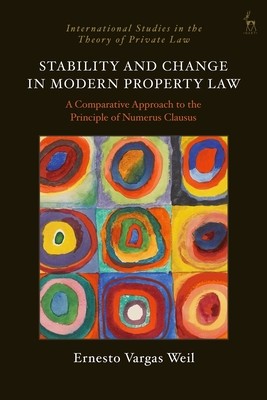
- We will send in 10–14 business days.
- Author: Ernesto Vargas Weil
- Publisher: Hart Publishing
- ISBN-10: 1509981926
- ISBN-13: 9781509981922
- Format: 15.6 x 23.4 x 1.9 cm, kieti viršeliai
- Language: English
- SAVE -10% with code: EXTRA
Reviews
Description
This book examines the English and German version of the numerus clausus principle which holds that there is a list of permitted property rights.
It challenges recent views that the principle renders property law inflexible and unable to accommodate social and economic changes. Relying on a novel approach combining property theory and comparative research of English and German law, it argues that the restrictions the principle imposes on the creation of new property types actually does accommodate social changes through a process of 'functional transformations' of the existing property rights. This is a fascinating, unique study, that makes a rigorous, original contribution to property law theory.EXTRA 10 % discount with code: EXTRA
The promotion ends in 23d.20:26:58
The discount code is valid when purchasing from 10 €. Discounts do not stack.
- Author: Ernesto Vargas Weil
- Publisher: Hart Publishing
- ISBN-10: 1509981926
- ISBN-13: 9781509981922
- Format: 15.6 x 23.4 x 1.9 cm, kieti viršeliai
- Language: English English
This book examines the English and German version of the numerus clausus principle which holds that there is a list of permitted property rights.
It challenges recent views that the principle renders property law inflexible and unable to accommodate social and economic changes. Relying on a novel approach combining property theory and comparative research of English and German law, it argues that the restrictions the principle imposes on the creation of new property types actually does accommodate social changes through a process of 'functional transformations' of the existing property rights. This is a fascinating, unique study, that makes a rigorous, original contribution to property law theory.

Reviews